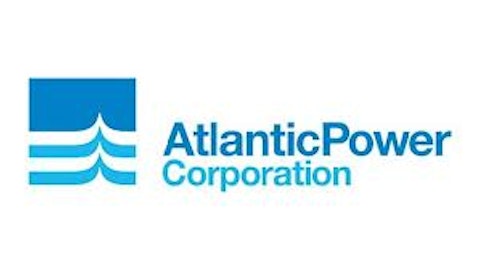The funny thing about the natural gas export debate is that both sides are claiming the exact same thing — that they will help create more American jobs and bring down the trade deficit through more exports. So how can we tell which side offers the better argument? The Dow Chemical Company (NYSE:DOW) and Exxon Mobil Corporation (NYSE:XOM), have been two of the most vocal advocates on opposite sides of the debate, and have recently taken a couple of shots across each others’ bows.

What makes this story even more interesting, though, is that ExxonMobil is poised to do well no matter what side wins this debate. Let’s take a look at why these two sides of the argument are claiming the same benefits for the U.S. and how Exxon Mobil Corporation (NYSE:XOM) could come out on top no matter what.
The debate
Thanks to the recent surge in natural gas production, many have debated the merit of exporting liquified natural gas, or LNG. Certainly a market opportunity exists, but is this market opportunity in the best interests of the nation? On the side for exporting LNG is ExxonMobil, which claims that it would spur an even further increase in natural gas production, and in turn create more jobs and lower the country’s trade deficit. Exxon Mobil Corporation (NYSE:XOM) isn’t the only one on this side of the debate, either. Over 17 different sites in the U.S. have been identified as potential locations for LNG export, and 10 of them have gone to the Federal Energy Regualtory Commission for an export license.
As of right now, Cheniere Energy, Inc. (NYSEAMEX:LNG) has the only approved license to export to countries that are not members of a free trade agreement. The license allows them to export at a rate of about 2 billion cubic feet per day, or about 3% of the total current U.S. production. While it is difficult to determine how much production would increase if more of these proposed facilities were to come online, certainly we can assume that the percentage of production going to exports would increase significantly.
On the other side of the coin, we have a large base of manufacturers in the U.S. that claim by not exporting natural gas, we would be able to use this advantaged feedstock to power the manufacturing industry in the U.S. This would in turn create American jobs and decrease our trade deficit by exporting finished goods.
The Dow Chemical Company (NYSE:DOW) is one of the first companies that comes to mind on this side of the debate because chemical manufacturing has seen some of the most immediate effect from cheap natural gas as a chemical feedstock. Other sectors that also see major advantages from not exporting natural gas are energy intensive endeavors like power generation and aluminum and steel manufacturing.
Atlantic Power Corp (NYSE:AT) generates almost 66% of its power exclusively from natural gas, and the cheaper cost of generating power could potentially inspire power hungry industries to consider the U.S. Also, steelmaker Nucor Corporation (NYSE:NUE) has plans to resurrect one of its steel mills in Louisiana thanks in large part to cheaper energy from natural gas. Both of these companies have either expressed their concerns over exporting natural gas, or have directly benefited from the current gas market.

